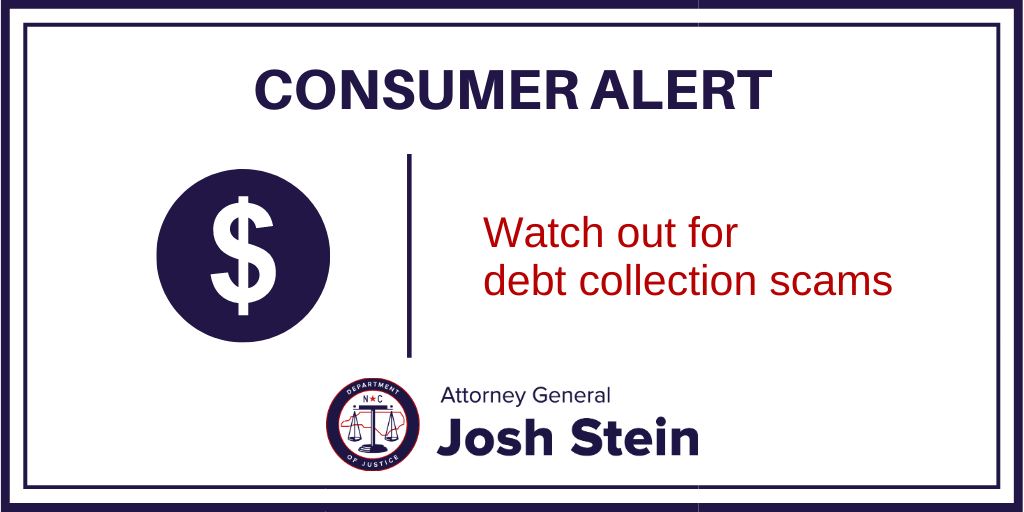
Tuesday, October 6, 2020
The Attorney General’s Office is working to crack down on debt collection scammers who try to convince consumers that they owe unpaid debts or try to scare or threaten consumers to collect on non-existent debt.
If you receive a call from a supposed debt collector, take these steps to verify the call and determine your rights:
- Get the name of who is calling, the name of the collection company, its address, and its phone number.
- Verify that this company is licensed. In North Carolina, you can do so by contacting the North Carolina Secretary of State and the North Carolina Department of Insurance.
- Get validation information about the debt – within five days of contacting you, debt collectors are required by law to provide you with details about the debt, including the amount, the current creditor, and how to get the name of the original creditor.
- Remember that debt collectors cannot threaten to arrest you or take other actions, such as suspending your driver’s license, reporting you to immigration authorities, or calling your employer. If you’re being threated, hang up and report the call to NCDOJ’s Consumer Protection Division (1-877-5-NO-SCAM) and the FTC (ftc.gov/complaint).
- Look into the debt by checking with the original creditor.
- Remember that you can dispute debt if you think you don’t owe some or all of it.
Actual debt collectors may contact taxpayers by telephone, but only after the IRS and the debt collection company have attempted to contact the taxpayer by mail. Legitimate debt collectors working on behalf of the IRS will instruct taxpayers to pay their overdue taxes online at irs.gov or by sending a check, made out to “U.S. Treasury,” directly to the IRS.
Remember that a legitimate debt collectors may not:
- Use profanity or threaten you with violence.
- Tell you that you will be arrested if you don’t pay.
- Pretend to be attorneys or government representatives.
- Tell your employer or others about your debts.
- Pretend that they are contacting you for other reasons.
- Contact you before 8 a.m. or after 9 p.m. unless you agree.
- Garnish your wages.
Learn more about debt collection practices here. If you have a complaint about a debt collector, call us at 1-877-5-NO-SCAM or file a complaint.
